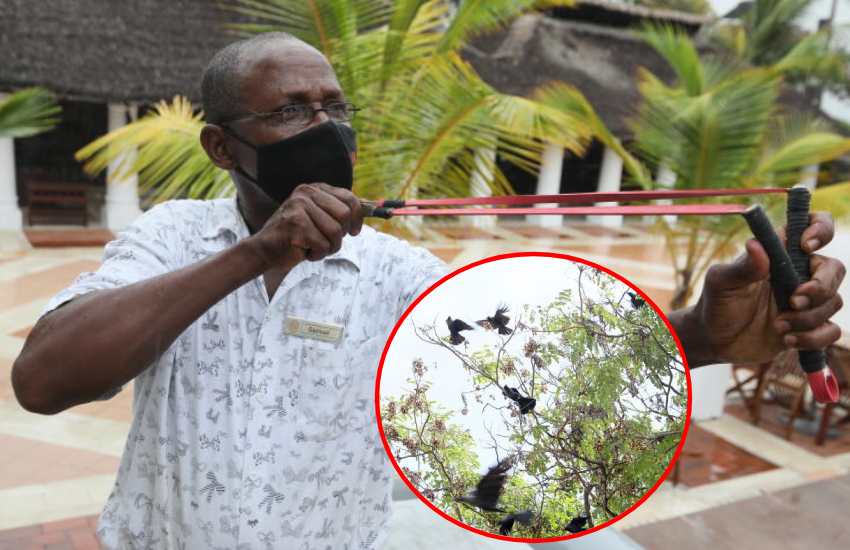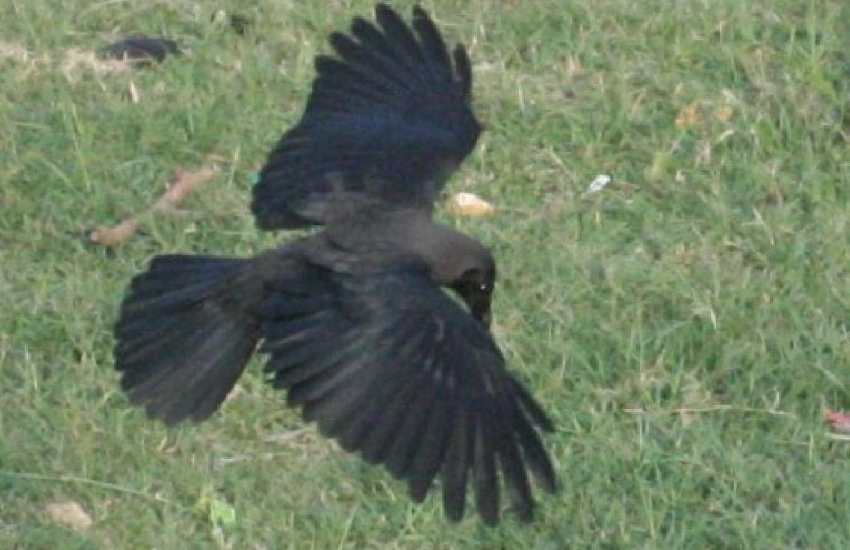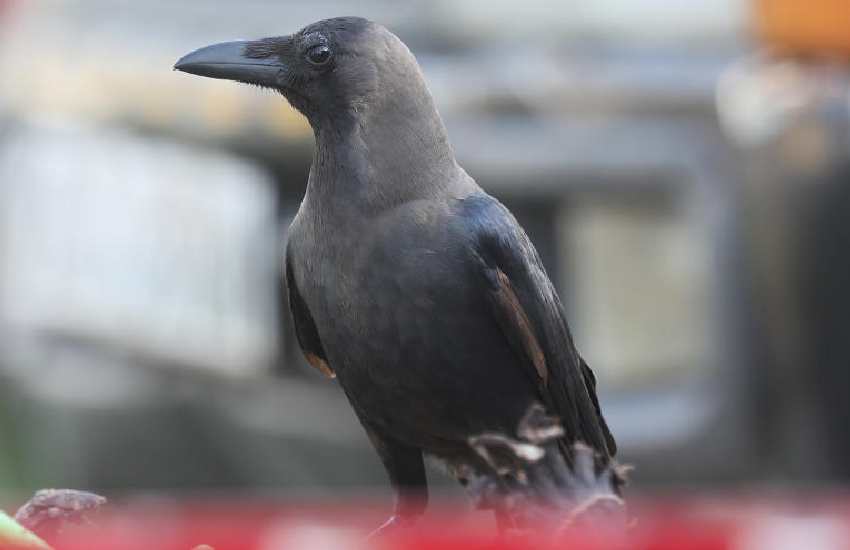
At Serena Beach Hotel and Spa in north Coast, we find Samuel Ndunda, 52, armed with a catapult to scare away birds. Ndunda is among three people employed solely to scare away Indian house crows, a preying bird that wreaks havoc at the Coast. The workers chase the black and grey necked birds that hover around the hotel lawn looking for food. “They are a real nuisance. They grab food from plates. They excrete all over as they fly from one spot to another,” he said.
In the 2018/19 financial year, Mombasa County government allocated Sh30 million to eradicate the birds. Yesterday, senior county officials declined to comment on the matter despite concerns by players in the hospitality industry and scientists who have described the birds as invasive pests.
Officials in the communications department, however, said that the county tried to trap and suffocate the birds but their numbers keep increasing. Herman Mwasaghua, the Serena Beach Hotel general manager, said they have been forced to deploy staff from the hotel animation squad to ensure that guests are not inconvenienced by the birds. “Their numbers have been swelling. They grab food from plates of guests. In fact, they are also known to eat eggs of other bird species leading to their extinction,” Mwasaghua said.
Introduced intentionally
Stories have been told of how the birds came to be in Mombasa. “It is said ships sailing along the Kenyan Coast from the Far East and India brought them. They would perch on the ships during the entire voyage,” Mwasaghua said. The hotelier said that the Indian house crows beat attempts to trap them or feed them on food laced with poison.

Other accounts claim the birds were introduced intentionally around 1890 in Far East countries to control garbage, especially leftover food. Researchers in Mombasa claim the birds arrived in Kenya in 1947 and since then the numbers have grown, thanks to the growing human population and the accompanying mounds of garbage, which provide ready food for them.
One can hardly walk for less 100 metres without seeing the Indian house crows fly past. They have spread to Maungu near Voi in Taita Taveta County. “Our beach lawn which is interspersed with coconut palm trees and other natural vegetation was once home to an array of smaller bird species. But they are not there today. It is the Indian house crows that have decimated them by eating their eggs,” Mwasaghua said.
Read Also: Get rid of these bats, they are bad omen - Mombasa residents claim
Joseph Ndunda, the Mombasa Beach Hotel general manager noted that the hotel gardeners are tasked to scare away the birds when guests are having meals. “They are a nightmare and are very noisy. They have been a problem for a long time and a permanent solution ought to be found soonest,” Ndunda said.
Mohamed Hersi, the Kenya Tourism Federation chair described the Indian house crows as a huge messy affair. “We can no longer ignore this sad state of affairs. They eat all the nice small indigenous birds and they equally soil every surface they perch on,” he said. Hersi said the county’s Environment department should come up with a plan to address the menace once and for all.

Dr Ikwaye said it is not the work of the county government to tackle the Indian house crows but other government agencies like the Kenya Civil Aviation Authority, National Environmental Management Authority (Nema) and the Kenya Wildlife Service. He said that the birds have affected the tourism sector because they prefer the open spaces in hotels where guests are meant to enjoy an outdoor dining experience. “Weddings and outdoor events are also affected because you cannot leave your table for more helping without these birds picking up food from your plate,” Ikwaye said.
Read Also: How flock of 20,000 paper birds helped pay for two Covid-19 units
A community group in Vipingo, Kilifi County had decided to collect and destroy Indian house crow eggs in order to control the numbers. Participants were paid Sh10 for each egg they retrieved from the nests. However, the initiative was unsustainable. Conservationists have been rooting for the use of a poisonous substance known as Starlicide which underwent trials in Malindi some years back and effectively reduced the Indian house crow numbers to manageable levels.
In 2005, a conservation group, A Rocha Kenya, tried to eradicate the birds in Malindi using a Starlicide but the government banned its importation. Ben Wemali, a conservationist and a former Nema enforcement officer said the best way to eradicate the birds was to starve them by removing garbage. “Studies show that they are very intelligent. You cannot trap them twice and the only way is to collect the garbage and starve them,” he said.
 The Standard Group Plc is a multi-media organization with investments in media
platforms spanning newspaper print
operations, television, radio broadcasting, digital and online services. The
Standard Group is recognized as a
leading multi-media house in Kenya with a key influence in matters of national and
international interest.
The Standard Group Plc is a multi-media organization with investments in media
platforms spanning newspaper print
operations, television, radio broadcasting, digital and online services. The
Standard Group is recognized as a
leading multi-media house in Kenya with a key influence in matters of national and
international interest.
